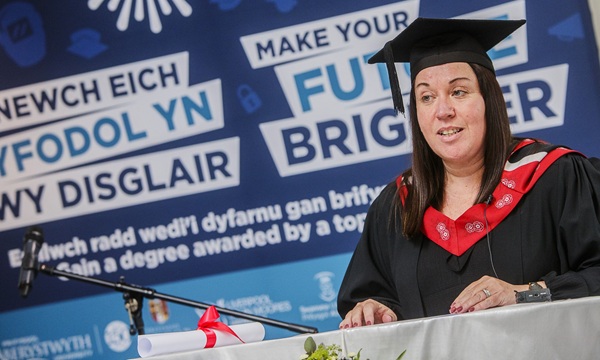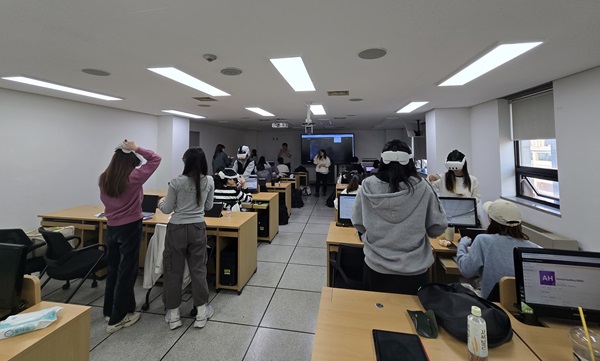Written by:
 Jainita Hogervorst
Jainita Hogervorst
Director
Aerviva Aviation Consultancy
______________________________________________________________________________________________________________________________
In today’s career landscape, one thing has become clear: it’s not just what you know, but how you use it that counts. Soft skills are slowly taking center stage in the world of recruitment. Companies are no longer solely interested in hard skills like technical knowledge or academic qualifications. They now recognize that other competencies are the glue that holds a productive and harmonious workplace together.
Jainita Hogervorst, Director of Aerviva Aviation Consultancy, a company based in Dubai specializing in aviation recruitment and document management, explains the significance of soft skills and the change in businesses’ mindset, as well as practical ways to assess these skills during the recruitment process, helping both companies and job seekers understand what truly matters in today’s job market.
The Role of Soft Skills in a Professional Environment
Soft skills and hard skills are two different types of abilities that people bring to the workplace. While hard skills are the specific technical or job-related knowledge and abilities, like programming or accounting, soft skills are the personal qualities and social abilities that help us work well with others. Deloitte predicts that by 2030 soft skills jobs will make up 63% of all jobs.
“In the past, hard skills were often given more importance, but nowadays, in our fast-changing work world, other competencies are gaining prominence. These are the personal qualities and abilities that make us effective in the workplace. Think of them as the ‘people skills’ that help us work well with others. Whether you’re a team player, an effective communicator, or someone who can navigate the twists and turns of a dynamic work environment, your soft skills are as valuable as any other tool in your professional toolbox,” says Hogervorst.
According to her, soft skills are not just important; they’re essential for both personal and professional success. They enable us to collaborate effectively, solve problems, and handle challenges more easily:
“Usually, adaptability, communication, and emotional intelligence stand out. Adaptability means being flexible and open to change, which is crucial in today’s fast-paced world, and especially in the aviation industry. For example, pilots, crew, and engineers require strong soft skills as they interact with passengers and ground staff to ensure seamless operations to and from destinations. Good communication helps us convey our ideas and understand others. Emotional intelligence lets us recognize and manage our own emotions and those of others, promoting positive relationships.”
For example, a study titled Supervisor Emotionally Intelligent Behaviour and Employee Creativity, conducted by Yale University, found that people with emotionally intelligent managers were happier, more creative, and more innovative.
Why New Colleagues Tend to Fail: Lack of Soft Skills is Critical
The Director of Aerviva Aviation Consultancy assures that the importance of soft skills in the workplace is growing because of a few important reasons, starting with technology:
“As technology is advancing rapidly, and while it helps us do many things, it can’t replace understanding, teamwork, and good communication. With more people working remotely or in diverse teams, these skills become even more critical because they help build trust and cooperation among team members.”
Skillshub found that soft skills receive an average of 12,100 searches a month, supporting the public’s interest in these. The most searched for are interpersonal skills (22,2000 monthly searches), leadership skills (8,100 monthly searches) and organisational skills (4,400 monthly searches).
As reported in a McKinsey survey titled “Building Workforce Skills at Scale to Thrive During—and After—the COVID-19 Crisis,” the proportion of companies addressing empathy and interpersonal skills doubled in 2020. Furthermore, LinkedIn’s Global Talent Trends report reveals that 92% of talent acquisition professionals think that soft skills are equally or more important than hard skills. And 89% said that when a new hire doesn’t work out, it’s because they lack critical soft skills.
“It is important to mention that soft skills also boost innovation because people who can listen to others and share their ideas freely create a more creative environment. Companies see these benefits, and recent data, as mentioned above, show that they are giving more attention to this when recruiting. Companies believe they’re harder to find than hard skills, so, as our world changes, soft skills are becoming increasingly valuable in the workplace,” comments Hogervorst.
The Process of Evaluating Soft Skills Might Be Tricky
Evaluating soft skills during the recruitment process can be challenging. Unlike hard skills, which can be tested through exams or certifications, they are more about how a person behaves and interacts with others. This makes them slightly difficult to measure. The Director of Aerviva Aviation Consultancy shares some useful methods businesses can use.
“Behavioral interviews are one way – in these interviews, candidates are asked to share real examples of how they handled situations in the past, revealing their problem-solving, communication, and teamwork abilities. Role-play scenarios can also help companies see how a candidate might act in specific job-related situations. Additionally, personality assessments provide insights into a person’s traits and how they might fit into a team. Lastly, reference checks and asking for examples from a candidate’s past experiences can give companies valuable information about their soft skills, helping them make better recruitment decisions,” suggests Hogervorst.
In conclusion, even though it is comparably more difficult to evaluate soft skills during the recruitment process, nowadays they strongly contribute to success in the workplace: encompassing personal qualities and social abilities, soft skills are fostering effective collaboration and problem-solving. It means that in the contemporary landscape, recruitment people must pay attention to both types of skills equally.







